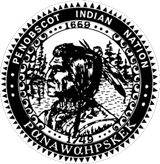Tourism and Ecotourism
The Penobscot Nation’s tourism development plan is based on the following steps:
1. Establish a vision and plan: Establish a comprehensive framework for development incorporating short- and long-term goals and objectives. This should include establishing a unified brand identity for the destination, and outlining plans for its infrastructure, attractions, marketing and events.
2. Design for the future: Consider projected growth, the availability of resources, and the current state of the destination, to ensure the plan meets current and future needs.
3. Invest in infrastructure: Build local infrastructure, such as transportation networks, hotel facilities, and visitor experiences that are both attractive to potential tourists and have an impactful and lasting effect on the landscape.
4. Market the destination: Use marketing campaigns and initiatives to create an appeal for potential visitors and build the destination’s reputation.
5. Foster local cultural experiences: Include activities, such as local art and music, culinary tours, festivals and other events to draw potential visitors.
6. Focus on sustainable development: Incorporate principles of sustainability into all aspects of planning, development and management.
7. Monitor progress: Track progress of the plan and adjust strategies accordingly. This could also involve assessing the success of particular initiatives and identifying areas where investment or change could be beneficial.
As a part of following the plan listed above, the Penobscot Nation has recently applied for a Tourism Grant to focus on a professional feasibility study, which will of course consider the listed factors. The feasibility study will help the Nation focus on the area and type of tourism that will best serve the Tribe.
The Penobscot Nation’s tourism development plan is based on the following steps:
1. Ecotourism development involves the careful integration of economic, environmental and social practices in order to preserve and promote a sustainable tourism industry. This requires practices such as reducing the environmental impact of tourism, encouraging local participation in decision-making and development, diversify the economic benefits from tourism, and adopting policies and practices that protect wildlife, wildlife habitats, and local culture.
2. Ecotourism should be based around nature-based experiences that respect both wildlife and local cultures. For example, ecotourism operators should provide tours and experiences that are limited in size to minimize disturbance to wildlife habitats and to ensure that guest activities remain within the boundaries of responsible tourism.
3. Ecotourism development should be locally driven and all stakeholders – including the government, tour operators, local communities and tourists, should work together and share decision-making.
4. Local communities should have a key role in decision-making and development in order to ensure that the benefits from tourism reach local residents who live in and around the areas that are being developed for tourism.
5. Ecotourism should also source from and employ only members of the local community as staff and guides. This creates economic stability, creates employment and local prosperity, and helps to ensure the preservation of local culture and traditions.
6. Where possible, resources and materials used in the development and operation of ecotourism activity should be sourced locally and be ecologically friendly or renewable.
7. Finally, the ecotourism industry should work with local community organizations to develop education and training programs, including local guides and interpreters, to promote sustainability and enable communities to benefit from and engage in ecotourism activities.
The Penobscot Nation is in the process of reviewing various alternatives for ecotourism. The Penobscot Nation has, through its conservation and restoration efforts, raised awareness about the importance of conservation and sustainability of the local ecology. Ecotourism initiatives at the Nation will reflect the Penobscot Indian Nation’s commitment to preserving its natural resources and ecological heritage for future generations.
